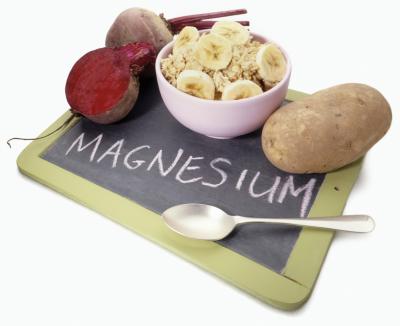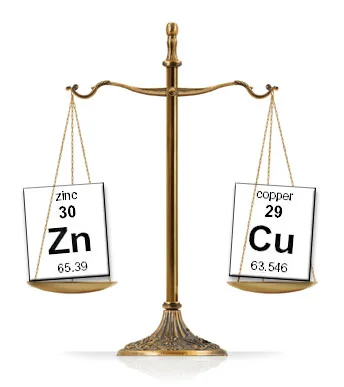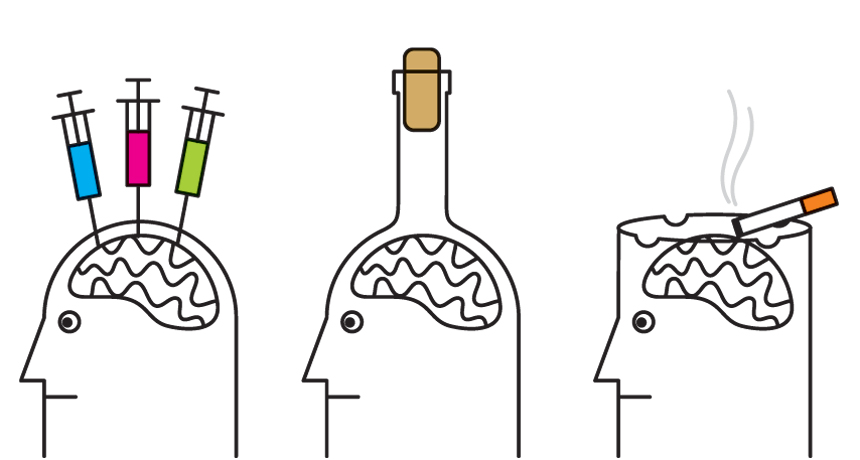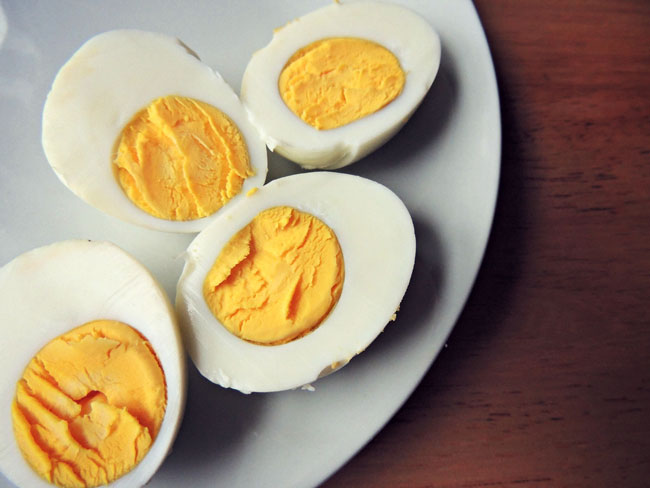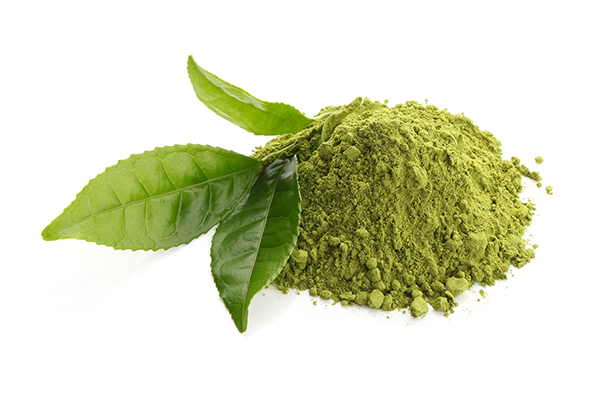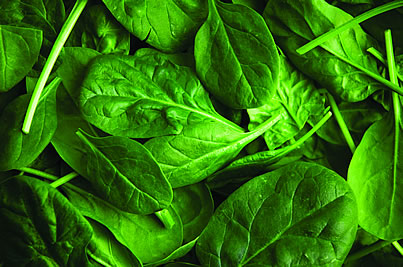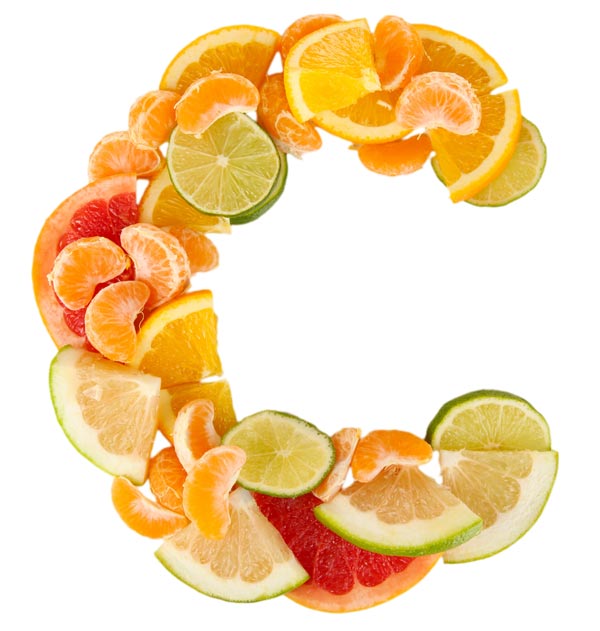“There is no biological free lunch.”
If you try to cheat nature, it will backfire.
By managing symptoms with synthetic man-made drugs, you may feel better for a while.
But once you stop those drugs, you’ll end up with more symptoms than you started with.
I experienced this firsthand.
When I was on SSRI antidepressants, benzodiazepines, and Adderall, I felt better initially.
But then something just didn’t feel right.
I started suffering from cognitive decline, something I hadn't experienced before.
I eventually got fed up with the medication and tried getting off of them.
But then I felt remarkably worse – much worse than I did before starting the medication.
Doctors simply told me I was experiencing a relapse of my depression and anxiety.
But that couldn’t be it, because not only were my symptoms much worse, but I also had new symptoms - symptoms I didn't experience before I went on medication.
So I did some research, and discovered something called “drug-induced nutrient depletion”.
Studies show that pharmaceutical drugs can deplete your body of critical nutrients through multiple mechanisms, including increased excretion of vitamins and minerals, and impaired digestion, absorption and storage of nutrients.
Over time, nutritional deficiencies can develop.
And these deficiencies can cause additional symptoms and increase the side effects.
In fact, many drug "side effects" are simply nutritional deficiencies.
This is clearly a problem because nutrient deficiencies can be one of the main causes of mental illness.
Being prescribed medication, which then further depletes vitamins and minerals from your body, will make you worse. It’s an epidemic that seems to be ignored by the conventional medical system.
You may even develop new symptoms or side effects months or years after starting a medication because it takes time for nutrients to be depleted from your body. So both you and your doctor may not make the connection between the original medication and your new symptoms.
These additional symptoms and “side effects” are often diagnosed as a new disease, leading to a new prescription, which further depletes nutrients.
So it’s clearly a downward spiral where you could end up being on multiple medications at once.
At my worst, I was on four psychiatric medications. Thankfully I'm off them all now.
But this article discusses the seven key nutrients that are commonly depleted by psychiatric medication, and how you can replenish them, minimize side effects, and feel better.
Your drug package insert won’t list these deficiencies, and your doctor is definitely not aware of them.
1. Coenzyme Q10 (CoQ10)
Coenzyme Q10 (CoQ10) is a molecule found in every cell of your body and plays a key role in the production of energy.
It’s also an antioxidant and protects your body and brain from free radical damage.
Higher levels of CoQ10 have a “significant antidepressant effect” because of its “well-documented antioxidant effect”.
This makes sense considering the increasing amount of scientific literature suggesting that oxidative stress contributes to depression.
Unfortunately, studies show that a number of psychiatric medications, including antidepressants, deplete CoQ10.
Low levels of CoQ10 can cause brain fog, mental fatigue, difficulty concentrating, memory lapses, depression and irritability.
Other deficiency symptoms can include increased blood pressure, muscle cramps, high blood sugar, and shortness of breath.
That’s why I recommend supplementing with at least 100 mg of CoQ10 if you take one of the medications below, which have been proven to deplete CoQ10:
Antipsychotics - Aripiprazole (Abilify), Quetiapine (Seroquel), Risperidone (Risperdal), Olanzapine (Zyrexa), Haloperidol (Haldol), Paliperidone (Invega), Ziprasidone (Geodon)
Antidepressants - Fluoxetine (Prozac), Paroxetine (Paxil), Sertraline (Zoloft), Citalopram (Celexa), Escitalopram (Lexapro), Bupropion (Wellbutrin), Mirtazapine (Remeron), Venlafaxine (Effexor), Amitriptyline (Elavil), Doxepin (Adapin), Imipramine (Tofranil), Desipramine (Norpramin), Nortriptyline (Aventyl), Protriptyline (Vivactil)
You can get CoQ10 from this supplement.
2. Magnesium
Magnesium is a vital mineral that participates in more than 300 biochemical reactions in your body.
It plays a key role in neurotransmitter, enzyme, and hormonal activity, all of which can have a huge impact on your mood and brain function.
It’s one of the most important nutrients for optimal brain health, and it reduces anxiety, depression and irritability.
Yet, many people are deficient in magnesium today and may experience the following symptoms because of it:
Increased blood pressure
Muscle weakness, cramps, tremors, and spasms
Headaches and migraines
Insomnia
Heart arrhythmias
Osteoporosis
Nausea
Interestingly, these symptoms sound very similar to the list of side effects of many common common psychiatric medications.
And research has shown that the following psychiatric medications deplete magnesium from your body, increasing the likeliness of developing a deficiency:
Antidepressants - Fluoxetine (Prozac), Paroxetine (Paxil), Sertraline (Zoloft), Citalopram (Celexa), Escitalopram (Lexapro), Venlafaxine (Effexor)
Central nervous stimulants - amphetamine (Adderall), dextroamphetamine (Dexedrine), lisdexamfetamine (Vyvanse), methylphenidate (Ritalin, Concerta), atomoxetine (Strattera), dexmethylphenidate (Focalin)
Inadequate magnesium levels contribute and worsen many neuropsychiatric problems. This includes depression, anxiety, insomnia, seizures, ADHD, pain, schizophrenia, irritability, premenstrual syndrome, drug abuse, and short-term memory and IQ loss.
And case studies have shown that patients with schizophrenia or major depression who have attempted suicide had significantly lower levels of magnesium in their cerebrospinal fluid.
Maybe doctors should consider prescribing magnesium – something that actually gets to the root cause of these conditions – rather than giving out medications that cover up symptoms and actually make the underlying condition worse. Just a thought.
So if you have mental health condition, or take medication to deal with it, I'm convinced you should be supplementing with magnesium every single day.
Magnesium is included in this supplement.
You should also eat lots of food with magnesium, including avocados, almonds, pumpkin seeds, swiss chard, spinach, dark chocolate, halibut and beets.
These foods are included in my Free Grocery Shopping Guide for Optimal Brain and Mental Health.
3. Melatonin
Melatonin is a hormone released by the pineal gland, a small gland in your brain. Melatonin helps control your sleep and wake cycles (circadian rhythm).
It is critical for deep and restorative sleep, which is necessary for optimal brain and mental health.
Yet many psychiatric medications can deplete your supply of melatonin, increase your need for melatonin, or interfere with the activity of melatonin. This can lead to insomnia at night and fatigue during the day, which are common side effects of psychotropic medication. You may also experience frequent waking throughout the night.
Here are some of the drugs shown to affect melatonin:
Antidepressants including Fluoxetine (Prozac), Paroxetine (Paxil), Sertraline (Zoloft), Citalopram (Celexa), Escitalopram (Lexapro), Venlafaxine (Effexor)
Benzodiazepines including Diazepam (Valium), clorazepate (Tranxene), lorazepam (Ativan), Clonazepam (Klonopin), Alprazolam (Xanax)
Antipsychotics including Aripiprazole (Abilify), Quetiapine (Seroquel), Risperidone (Risperdal), Olanzapine (Zyrexa), Haloperidol (Haldol), Paliperidone (Invega), Ziprasidone (Geodon)
If you take one of these drugs, you should consider supplementing with melatonin every night. If you don’t take medication, it’s still a safe and effective way to fall asleep and stay asleep throughout the night.
You can also consider taking this sleep supplement. It contains a number of natural compounds that naturally increase your production of melatonin.
I also share my very best sleep tips with my clients through our Brain Recovery Accelerator Program. We have a free online workshop that talks about the program. You can register for the workshop here.
4. Vitamin B2
Vitamin B2, also known as riboflavin, plays a key role in energy metabolism throughout your entire body.
As a result, a deficiency can affect the entire body, leading to low energy, weight gain, and skin and thyroid problems.
The following drugs can inhibit the absorption of vitamin B2, increasing your need for supplementation:
Antipsychotics including Aripiprazole (Abilify), Quetiapine (Seroquel), Risperidone (Risperdal), Olanzapine (Zyrexa), Haloperidol (Haldol), Paliperidone (Invega), Ziprasidone (Geodon)
Anticonvulsants and Mood Stabilizers, including Phenytoin (Dilantin), carbamazepine (Tegretol), Primidone (Mysoline), Methsuxamide (Elontin), Valproic acid (Depakote), topiramate (Topomax) and Gabapentin (Neurontin)
Antidepressants, including Fluoxetine (Prozac), Paroxetine (Paxil), Sertraline (Zoloft), Citalopram (Celexa), Escitalopram (Lexapro), Bupropion (Wellbutrin), Mirtazapine (Remeron), Venlafaxine (Effexor), Amitriptyline (Elavil), Doxepin (Adapin), Imipramine (Tofranil), Desipramine (Norpramin), Nortriptyline (Aventyl), Protriptyline (Vivactil)
Lower levels of vitamin B2 have been found in people with depression, so giving them psychiatric medications can actually make them feel worse in the long run.
To help yourself, you can supplement with Vitamin B2. It’s included in the Optimal Energy supplement.
Healthy food sources of Vitamin B2 include pastured eggs, leafy vegetables, beef liver, mushrooms, sunflower seeds, and almonds.
These foods are included in my Free Grocery Shopping Guide for Optimal Brain and Mental Health.
5. Vitamin B6
Vitamin B6 is a key nutrient that boosts mood, deepens sleep, and supports your entire nervous system.
It accomplishes this by playing a key role in the production of many neurotransmitters in your brain, including serotonin, GABA and dopamine.
But since psychiatric medications alter these neurotransmitters, vitamin B6 levels can be affected as well.
When I was taking antidepressants and anti-anxiety medication, I learned that I should be supplementing with vitamin B6.
This is because multiple medications have been shown to deplete Vitamin B6, including:
Antidepressants including Fluoxetine (Prozac), Paroxetine (Paxil), Sertraline (Zoloft), Citalopram (Celexa), Escitalopram (Lexapro), Bupropion (Wellbutrin), Mirtazapine (Remeron), Venlafaxine (Effexor), Amitriptyline (Elavil), Doxepin (Adapin), Imipramine (Tofranil), Desipramine (Norpramin), Nortriptyline (Aventyl), Protriptyline (Vivactil).
Benzodiazepines including Diazepam (Valium), clorazepate (Tranxene), lorazepam (Ativan), Clonazepam (Klonopin), Alprazolam (Xanax)
So if you take one of the above medications, I highly recommend supplementing with Vitamin B6. It’s included in this supplement.
Drugs that deplete vitamin B2 will also indirectly deplete vitamin B6 because B2 is required to activate B6:
Antipsychotics including Aripiprazole (Abilify), Quetiapine (Seroquel), Risperidone (Risperdal), Olanzapine (Zyrexa), Haloperidol (Haldol), Paliperidone (Invega), Ziprasidone (Geodon)
Anticonvulsants and Mood Stabilizers, including Phenytoin (Dilantin), carbamazepine (Tegretol), Primidone (Mysoline), Methsuxamide (Elontin), Valproic acid (Depakote), topiramate (Topomax) and Gabapentin (Neurontin)
Symptoms of B6 deficiency include weakness, mental confusion, depression, insomnia and severe PMS symptoms.
Some of the best food sources of Vitamin B6 include potatoes, bananas and chicken. These foods are included in my Free Grocery Shopping Guide for Optimal Brain and Mental Health.
6. Vitamin B12 and 7. Folate
Vitamin B12 and folate are essential B vitamins that play a key role in methylation, one of the most important processes in your body and brain for optimal energy and nervous system function.
If you are depressed, you likely have lower levels of B12 and folate circulating in your blood, and people with low blood folate and B12 are at greater risk for developing depression.
Yet, instead of looking at folate and B12 levels in the blood, doctors often prescribe all sorts of psychiatric medications that have been shown to deplete folate and B12, including:
Antidepressants – Fluoxetine (Prozac), Paroxetine (Paxil), Sertraline (Zoloft), Citalopram (Celexa), Escitalopram (Lexapro), Bupropion (Wellbutrin), Mirtazapine (Remeron), Venlafaxine (Effexor), Amitriptyline (Elavil), Doxepin (Adapin), Imipramine (Tofranil), Desipramine (Norpramin), Nortriptyline (Aventyl), Protriptyline (Vivactil)
Benzodiazepines – Diazepam (Valium), clorazepate (Tranxene), lorazepam (Ativan), Clonazepam (Klonopin), Alprazolam (Xanax)
Antipsychotics including Aripiprazole (Abilify), Quetiapine (Seroquel), Risperidone (Risperdal), Olanzapine (Zyrexa), Haloperidol (Haldol), Paliperidone (Invega), Ziprasidone (Geodon)
Anticonvulsants and Mood Stabilizers, including Lithium (Lithobid), Phenytoin (Dilantin), carbamazepine (Tegretol), Primidone (Mysoline), Methsuxamide (Elontin), Valproic acid (Depakote), topiramate (Topomax) and Gabapentin (Neurontin)
B12 and folate deficiency can lead to an inability to methylate properly and increased homocysteine levels. This can worsen your depression, irritability, fatigue, confusion and forgetfulness.
Folate also helps produce SAM-e in the body, which can help fight depression and improve your mood.
If you decide to supplement with B12, you should avoid the semisynthetic version (cyanocobalamin) and take the methylated form (methylcobalamin), which is better absorbed. Methylcobalamin is included in this supplement.
Good dietary sources of natural folate include leafy greens, asparagus, broccoli, cauliflower, strawberries.
B12 is found primarily in animal foods, and beef liver is a really good source.
These foods are included in my Free Grocery Shopping Guide for Optimal Brain and Mental Health.
You should definitely monitor your B12 levels regularly.
More
Here are some more nutrients that have been shown to be depleted by psychiatric medication. Reduced levels do appear in the research - just not as consistently as the nutrients above - so supplementation should still be considered:
Vitamin D – Antidepressants, Benzodiazepines, Antipsychotics, Mood Stabilizers
Vitamin B1 – Benzodiazepines, Antipsychotics
Biotin – Benzodiazepines, Antipsychotics, Mood Stabilizers
Essential Fatty Acids, including Omega-3s – Antidepressants
Sodium (add salt to meals) – Antidepressants
Glutathione – Antidepressants
Calcium – Benzodiazepines, Antipsychotics, Antidepressants, Mood Stabilizers
Vitamin K – Benzodiazepines, Antipsychotics, Mood Stabilizers
Vitamin C – Antidepressants, Stimulants (Adderall), Antipsychotics
Inositol – Mood Stabilizers, Antipsychotics
Vitamin B3 – Antidepressants
Potassium – Stimulants (Adderall)
Vitamin A – Antipsychotics
Carnitine – Antipsychotics
Various minerals (Zinc, Selenium and Manganese) – Antidepressants
Conclusion
The bottom line is that the medication you may be consuming to manage your mental health actually reduces nutrient absorption, and can rob your body and brain of essential vitamins and minerals. This can lead to unwanted side effects and declining health.
On top of this, vitamin and mineral deficiencies are actually a huge underlying cause of mental health issues to begin with.
Luckily, you can avoid side effects, and even control and overcome chronic mental disease without medication, by restoring these missing nutrients:
Melatonin
Folate
Many of these nutrients are included in the Optimal Energy supplement. It’s the best and simplest way to restore your energy and mental clarity while taking psychiatric medication.
If I had simply been prescribed the above nutrients, I wouldn’t have needed medication. Instead, I was given a prescription that made my underlying deficiencies worse, and dug me into a deeper mental health hole.
If you have to take a prescribed drug, you can offset many of the side effects and experience much better health by supplementing with the above nutrients.
So why isn’t this information passed on to patients who are taking psychiatric drugs? Because unfortunately, almost all doctors are unaware that medications can deplete nutritional reserves.
So for now, you’ll just have to be aware of drug-nutrient depletions yourself.
If you’re interested in learning more, there are several handbooks and resources in the reference section of this article, including the Drug-Induced Nutrient Depletion Handbook and The Nutritional Cost of Prescription Drugs.
Enjoy This Article? You Might Also Like My FREE Food Guide for Optimal Brain and Mental Health!
References:
Pelton R Lavalle. The Nutritional Cost of Prescription Drugs. Morton Publishing Co, 2nd Ed., 2004
Kishi T, et al, “Inhibition of myocardial respiration by psychotherapeutic drugs and prevention by coenzymeQ,” Biomedical and clinical aspects of coenzyme Q, Yamamura Y, Folkers K, and Ito Y, eds, Elsevier/NorthHollandBiomedical Press: Amsterdam, 1980, vol2, 129-154.
Prescription for Nutritional Healing, third edition, (2000, Balch & Balch)
http://www.ncbi.nlm.nih.gov/pubmed/7728363
http://www.ncbi.nlm.nih.gov/pubmed/8848522
http://www.ncbi.nlm.nih.gov/pubmed/1289919
http://www.ncbi.nlm.nih.gov/pubmed/6262379
http://www.ncbi.nlm.nih.gov/pubmed/7150370
http://www.ncbi.nlm.nih.gov/pubmed/6705444
http://www.ncbi.nlm.nih.gov/pubmed/6626265
http://www.ncbi.nlm.nih.gov/pubmed/6737696
http://www.ncbi.nlm.nih.gov/pubmed/6167651
http://www.ncbi.nlm.nih.gov/pubmed/1578091
http://www.ncbi.nlm.nih.gov/pubmed/9155210
http://www.ncbi.nlm.nih.gov/pubmed/10896698
http://www.ncbi.nlm.nih.gov/pubmed/7150370
http://www.ncbi.nlm.nih.gov/pubmed/10746516
http://www.ncbi.nlm.nih.gov/pubmed/9861593
http://www.ncbi.nlm.nih.gov/pubmed/16542786
http://www.ncbi.nlm.nih.gov/pubmed/11041381
http://www.ncbi.nlm.nih.gov/pubmed/9368236
http://www.ncbi.nlm.nih.gov/pubmed/18705537
http://www.ncbi.nlm.nih.gov/pubmed/16542786
http://www.ncbi.nlm.nih.gov/pubmed/17568057
http://www.ncbi.nlm.nih.gov/pubmed/635065
http://www.ncbi.nlm.nih.gov/pubmed/22081620
http://www.ncbi.nlm.nih.gov/pubmed/23313551
https://umm.edu/health/medical/altmed/supplement/melatonin
http://pennstatehershey.adam.com/content.aspx?productId=107&pid=33&gid=000712
http://pennstatehershey.adam.com/content.aspx?productId=107&pid=33&gid=000706
http://www.tandfonline.com/doi/abs/10.1080/00048670802534408




